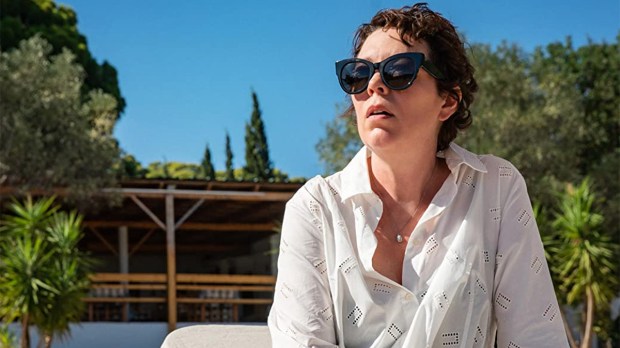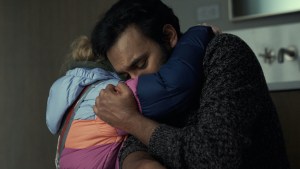Lenten Campaign 2025
This content is free of charge, as are all our articles.
Support us with a donation that is tax-deductible and enable us to continue to reach millions of readers.
The story begins with a celebrated poet—an older individual prone to vague, fanciful longings—who happens to be a bit of a voyeur. The poet is on a Mediterranean vacation, the languor of which is interrupted by a family of lively, even brash, young beachgoers whom the poet finds both obnoxious and oddly stimulating. As the narrative unfolds, an obsession develops, carefully layered with allusions to Italian poetry and Greek myth. Meanwhile, within the poet’s domestic space, motifs of decadence and decay abound: rotting fruit, melting makeup, humming cicadas, bloating bruises. All seem to be atrophying towards a final, grotesque conclusion.
It sounds like Thomas Mann’s Death in Venice, only it’s not the collapse of Edwardian continental Europe that the story is subliminally anticipating: it’s ours. The Lost Daughter—a cinematic rendering of Elena Ferrante’s 2006 novel by the same name, and currently available on Netflix—is a death knell for a world with an expiration date. It both participates in and exposes a culture that not only prizes feminist heroine quests over commitments to the next generation, but actively wishes to scare women from bringing offspring into a world coming undone.
Within such a framework—as in the broader majority of contemporary literature and film—no character could be more iconoclastic than an innocent child. And so, The Lost Daughter, Maggie Gyllenhaal’s feature directorial debut, follows suit. The film dutifully upholds the postmodern status quo, telling the story of a literature professor (Olivia Coleman) who’s been plagued with the inconvenience of raising rambunctious daughters early in life, barely escaping with a career intact that allows her to grade papers about Dante’s Paradiso while eating pre-packaged ice-cream cones on a Grecian beach.
By the time Coleman’s character, Leda, arrives at said beach (“from Cambridge, near Boston,” she tells other characters on two different occasions, with carefully affected humility), she’s a 48-year-old mother of two grown daughters, and the story of her younger motherhood years is being told through a series of flashbacks to her earlier life. The flashbacks are triggered by encounters with another young mother, Nina (Dakota Johnson), and her maladjusted daughter, Elena. Elena screams a lot, and is rather shrill, as are most children portrayed in the movie.
When Elena’s not screaming, she’s slapping her mother, clinging to her uncomfortably, or taunting her—just like Leda’s daughter Bianca used to do to her, hence the flashbacks. These behaviors are key to constructing the film’s attitude towards children: “they’re a crushing responsibility,” Leda tells another character—and not in a rewarding way, but in a way that seems explicitly connected to a paralyzing form of PTSD. Thus, it’s in a spirit of misguided vindication, perhaps, that Leda feels entitled to steal Elena’s beloved doll, a bizarre, petty offense on which many of the plot’s most absurd moments hinge.
At times, in The Lost Daughter’s defense, the film seems self-aware, as if it may be poking fun at its own pretentious worldview in which anxious academics play mind games with helpless six-year-olds on luxurious summer vacations. At one point during a flashback, the younger Leda and her first husband encounter a pair of bohemian wanderers hiking in the woods, and they invite them into the home they’re renting with their young children. Over wine and poetry, it becomes clear that the male hiker has left behind his own children and wife for this free-wheeling backpacking adventure with his paramour. But it’s OK, because running away is the first honest thing they’ve done their entire lives, explains the female hiker, a character whom, to Gyllenhaal’s credit, I desperately wanted to slap.
“We are obliged to do so many stupid things, from childhood even,” the woman explains. “What happened to us is the only thing that’s happened to me since I was born that makes sense.” Whether Gyllenhaal meant for the mistress hiker and her deadbeat partner to seem punchably self-absorbed and cliché—or whether they’re genuinely meant to seem bohemian and admirable—is left conspicuously ambiguous. The young Leda, to her credit, initially rolls her eyes at the hikers—but later, with the help of a few alcoholic beverages, becomes genuinely entranced by their indulgent worldview.
Another character who elicits a satisfying eyeroll from the younger, sharper, soberer Leda is the cringe-inducing, academic showboat Professor Hardy (Peter Sarsgaard). Leda meets the professor at a literary symposium, where his overly stylized conference repartee seems explicitly intended to evoke a caricature of a certain type of narcissistic neckbeard who fancies himself the main character in his own movie. He is meant to be a caricature after all, right? Young Leda seems to think so—right up until the moment she sleeps with him, out of what seems to be a newfound and devastatingly sincere feeling of passion towards him.
Are we being trolled? That’s the question I had to ask myself as I watched Leda’s relationship with Professor Hardy proceed on screen. I asked it again later when a group of rowdy young men (toxically masculine, by today’s standards) started chanting “Blue Lives Matter,” and again during another moment when the young Leda avows, with all sincerity, that she won’t let her mother help with childcare since the poor woman “didn’t even finish school.” These have to be jokes, right?
Then again, it’s hard to know what’s a caricature these days. When Honor Jones published a viral essay in the Atlantic last month about leaving her husband to spend more time “thinking about art and sex and politics and the patriarchy,” I thought that was a troll, too. It was as if an Atlantic editor had thought to herself, from a lofty Brooklyn flat, “how could I write the most stereotypically self-indulgent, woke manifesto possible in order to trigger the most hilarious meltdowns from pearl-clutching conservatives, before revealing the piece to be a joke?”
When I realized Jones wasn’t trolling, I felt genuinely embarrassed for her—and sad for her scorned husband, whom she described, in no uncertain terms, as devastated. Leda’s husband is devastated, too, when she leaves him for blowhard Professor Hardy. In a flashback, he begs her on bended knee, between sobs, not to abandon her family before she ultimately does. But that’s the world we live in now, in which spouses, children, and obligations are trumped in favor of decadent, wine-soaked conversations about poetry and patriarchies. Rather than expose the absurdity, as real art might aim to do, our cultural products, like Gyllenhaal’s new film, obediently reinforce them, however beautiful and thought-provoking they may otherwise be.
It’s in this context that an entire generation of women are considering forgoing childrearing altogether, according to another recent Atlanticarticle. And who could blame them? Films like The Lost Daughter, though otherwise visually sumptuous and magnificently acted, make the enterprise seem terrifying.
What the film shows but doesn’t say is another matter altogether. The subtext of The Last Daughter, as in Death in Venice, is that our empire is collapsing, at least on some metaphorical level, as a bleary decadence feebly distracts us with entertainment and degeneracy, just as poets and storytellers from Socrates to T.S. Eliot to David Foster Wallace always warned us that it would.
Luckily, we don’t have to succumb to the film’s perverse outlook on futurity. We’ve faced collapsing empires before, and the antidote is the same that it’s always been, from one generation to the next. Reject the decadent culture of death. Rear the iconoclasts. Be fruitful and multiply.


